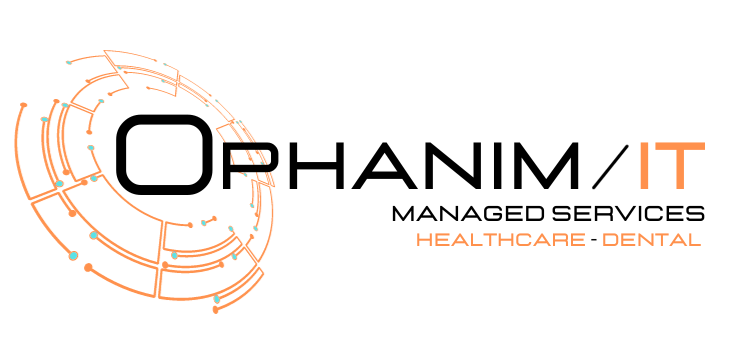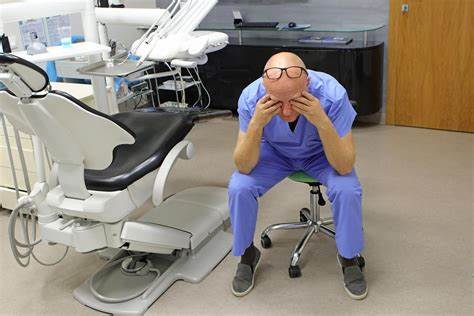Dental practices face numerous digital challenges in the coming years. Technologies like AI and innovative new strategies look set to reshape the industry. Meanwhile, the COVID-19 pandemic stress-tested the healthcare industry, putting IT systems under immense pressure. And that’s without the growing threat from cybercriminals holding dentists and other healthcare companies to ransom.
Only by futureproofing your practice can you stay ahead. That means hiring the right dental IT support company to upgrade and maintain your system, monitor for threats, and stay 100% regulatory compliant.
But what will the right company do to ‘futureproof’ your dental support systems? Find out below.
7 Measures to Futureproof IT Support for Dentists
- Routine Security Training and Awareness
- Comprehensive Risk Management
- Enhanced Access Controls
- Disaster Recovery and Data Backup
- Compliance and Regulatory Adherence
- Secure Patient Engagement Tools
- Proactive IT Infrastructure Management
1. Routine Security Training and Awareness
You could have the digital version of Fort Knox protecting your IT systems, but it’s only as effective as the weakest link. Unfortunately, that’s usually the people.
In 2017, for example, the UK’s National Health Service (NHS) was the victim of a comprehensive ransomware attack that encrypted patient information and could only be decrypted once the ransom had been paid. If it wasn’t paid, the program, known as WannaCry, threatened to destroy the information.
How did this disastrous attack start? Someone opened an unknown email and downloaded a document. That’s all it took.
Cybersecurity training, therefore, is critical to teaching staff members the dos and don’ts of data protection. That includes maintaining patient confidentiality, creating strong passwords, recognizing phishing emails, following the correct protocols for suspicious activities, and safely handling patient information.
Training should be ongoing and tailored – for instance, front-desk personnel may face different IT threats than dental hygienists or office managers.
2. Comprehensive Risk Management
Comprehensive risk management involves thoroughly and continuously evaluating a dental practice’s IT infrastructure. It should identify potential vulnerabilities to cybercriminals.
A dental IT support company will inspect:
- The physical security of servers and devices
- The integrity of software systems
- Potential for data breaches
- Antivirus and anti-malware updates
Encryption services will also be installed as standard for all patient data, ensuring that even if data is intercepted, it remains unreadable to unauthorized parties.
As new threats continue to emerge, your dental support systems will benefit from an outside agency’s investment in cutting-edge cybersecurity tools to guard against the latest threats.
3. Enhanced Access Controls
Patient data should not be accessible by anyone in the dental practice. Setting up enhanced access controls protects the data from individuals inside and outside the practice.
Multi-factor authentication (MFA), in particular, should be the norm for system access – especially for remote access to the practice’s network. MFA adds an additional layer of security to your dental support systems. Here’s how it works:
- Initial Login: User enters their username and password.
- Verification Request: System prompts for a second factor, such as a code or push notification.
- Second Factor: User provides the second factor, like entering a code from their phone.
- Access Granted: Upon successfully verifying both factors, the user gains access.
Moreover, MFA allows role-based access to ensure staff can only use information relevant to their role. For example, a dental assistant shouldn’t need the same level of access to patients’ financial records as an office manager.
4. Disaster Recovery and Data Backup
Disasters happen – even the most stalwart defenses sometimes succumb to a particularly devastating attack. In the face of data loss due to ransomware, natural disasters, or simple human error, the best IT support for dentists ensures the ability to restore information quickly.
Regularly scheduled backups and off-site data storage are critical components in this information architecture. But they also require the dental IT support company to routinely test the procedures to prevent a false sense of security.
5. Compliance and Regulatory Adherence
All patient data is governed by the Health Insurance Portability and Accountability Act (HIPAA). It prohibits healthcare providers from disclosing protected information to anyone but the patient and their authorized representative.
Maintaining adherence to HIPAA and other relevant healthcare regulations isn’t just a legal obligation but a cornerstone of patient trust.
Conducting routine compliance audits ensures that non-compliance issues are quickly resolved. It’s part and parcel of IT support for dentists and includes reviewing access controls, audit trails, data encryptions, and patient information integrity.
As data handling laws become increasingly stringent, raising your practice’s internal bar helps you stay ahead of the trend.
6. Secure Patient Engagement Tools
Patients expect convenient online access to health information. That includes secure patient portals and tele-dentistry solutions featuring robust encryption and authentication protocols.
Only dedicated dental IT support companies can help integrate these new systems into your existing digital architecture. Otherwise, you could see major problems in patient communications, appointment scheduling, and access to personal health records.
Indeed, when patients feel confident their personal information is protected, you’ll see a substantial uptick in the use of digital tools.
7. Proactive IT Infrastructure Management
Finally, active IT support for dentists is constantly needed to defend against cyber threats. Your dental IT support company should consistently update all practice software with the latest security patches. Furthermore, firewalls must be correctly configured to act as a substantial barrier to external attacks (while allowing internal data to flow).
Network segmentation is another strategy – it separates the network into segments that limit the potential data breaches.
Such proactive IT infrastructure management keeps your dental support systems secure and ensures day-to-day operations proceed seamlessly.
Closing Thoughts
Choosing the right dental IT support company is a key step toward futureproofing your practice. As you weigh up your options, ensure the company you select is familiar with the latest cybersecurity trends, regulations, and advanced patient engagement tools.
With the right approach, your dental support systems won’t just protect against risks but also prepare your practice to meet and exceed future patient needs.
Sources:
https://www.planetdds.com/blog/future-proof-your-dental-practice/
https://www.ddgroup.com/news/futureproof-your-dental-practice/
https://patientparadise.com/future-proof-your-dental-practices-from-any-crisis/







